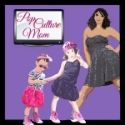I've Lost That Disney Magic

Beauty and the Beast is not just one of my favorite Disney movies, it's easily one of my favorite movies, period. When it was first released, I actually saw it in the theaters with my friends — in high school (don't judge). I've owed the VHS version and probably every DVD version ever released, all long before I had a child. After Pop Culture Toddler was born, and once we finally broke down and purchased a Blu-Ray player, I purchased the platinum edition of the movie. Like most of my favorite movies, I can recite many lines by heart. I know all of the songs, even the new one, which was never part of the theatrical release. So, given my love of Beauty and the Beast, why is that with each year I just get more and more cynical/questioning about parts of the movie?
Let's start with the whole reason the prince turned into the Beast. A beggar woman showed up at his door unannounced and asked for shelter for the night, and he said no. Uh... She's lucky he even opened the door. If some stranger shows up at our house in the middle of the night, I'm pretending we're not home. The last thing I'm doing is offering them a bed. This would apply even after she revealed herself to be a hottie sorceress. Maybe if she was offering Girl Scout cookies, I'd at least open the door; but she still would not get an invite in. The Beast is perfectly blameless in this one.
And how about that curse? The Beast has to find true love by age 21. Twenty-one?? Very few people I know had found true love that young. And what about Mrs. Pott's claim that they have been waiting 12 years for the spell to be broken. Are we talking dog years or something? If not, then this sorceress basically punished a nine-year old child for not letting her have a sleepover. That is seriously problematic.
Speaking of Mrs. Potts... (1) are all of the cups her children, or just Chip? Mrs. Potts tells Chip to get in the cupboard with his brothers and sisters, but Chip is the only one who appears to have changed back to a human when the curse is lifted. How in the world does she have a son that young when she is so very old, anyway?
And, I get that the moral of the story is acceptance, tolerance, and not judging people solely by their appearances, but the Beast is still (as far as Belle knows anyway) a different species. I don't care how nice he is, it's still bestiality. Ew.
And where does this story take place? Everyone says "bonjour," "monsieur," "madame," and "mademoiselle." There are names like Belle, Gaston, and Le Fou. However, the accents are distinctly American and only two of the characters (Lumière and his feather duster girlfriend) have French accents. The best I can figure, this all takes place in Canada.
I have many more questions and more just arise every time I watch the movie. For now, however, it's safe to assume I've lost the innocence and wondrous magic of Disney.

Let's start with the whole reason the prince turned into the Beast. A beggar woman showed up at his door unannounced and asked for shelter for the night, and he said no. Uh... She's lucky he even opened the door. If some stranger shows up at our house in the middle of the night, I'm pretending we're not home. The last thing I'm doing is offering them a bed. This would apply even after she revealed herself to be a hottie sorceress. Maybe if she was offering Girl Scout cookies, I'd at least open the door; but she still would not get an invite in. The Beast is perfectly blameless in this one.
And how about that curse? The Beast has to find true love by age 21. Twenty-one?? Very few people I know had found true love that young. And what about Mrs. Pott's claim that they have been waiting 12 years for the spell to be broken. Are we talking dog years or something? If not, then this sorceress basically punished a nine-year old child for not letting her have a sleepover. That is seriously problematic.
Speaking of Mrs. Potts... (1) are all of the cups her children, or just Chip? Mrs. Potts tells Chip to get in the cupboard with his brothers and sisters, but Chip is the only one who appears to have changed back to a human when the curse is lifted. How in the world does she have a son that young when she is so very old, anyway?
And, I get that the moral of the story is acceptance, tolerance, and not judging people solely by their appearances, but the Beast is still (as far as Belle knows anyway) a different species. I don't care how nice he is, it's still bestiality. Ew.
And where does this story take place? Everyone says "bonjour," "monsieur," "madame," and "mademoiselle." There are names like Belle, Gaston, and Le Fou. However, the accents are distinctly American and only two of the characters (Lumière and his feather duster girlfriend) have French accents. The best I can figure, this all takes place in Canada.
I have many more questions and more just arise every time I watch the movie. For now, however, it's safe to assume I've lost the innocence and wondrous magic of Disney.




























0 comments:
Post a Comment
In keeping with our vow to the Mom Pledge, all comments will be moderated for tone. Any comments made outside the spirit of that Pledge or any comments made to invoke a reaction outside the scope of that Pledge will not be posted.